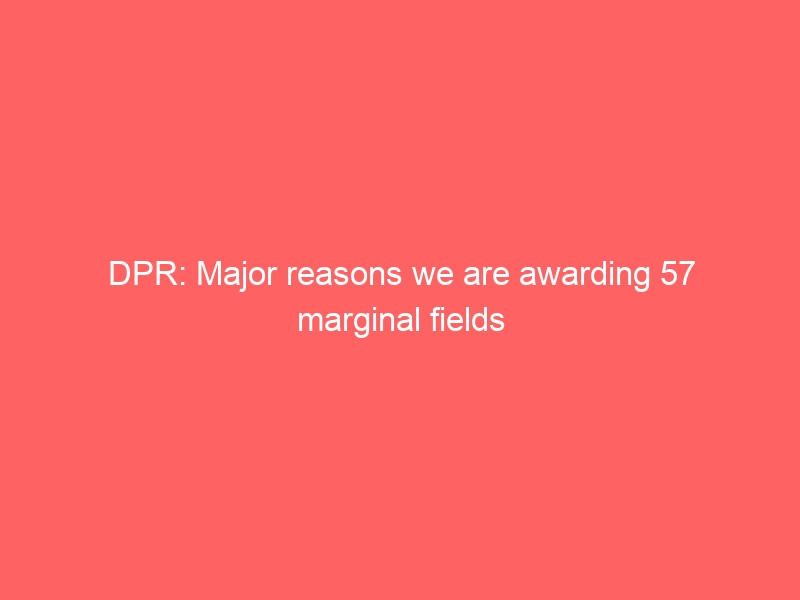By Our Correspondent
With the recent shortlisting of 161 indigenous companies to advance to the next and final stage of the bid round process for 57 marginal oilfields in the country, the Nigerian oil and gas industry is expected to witness tremendous growth in no distant time.
The Department of Petroleum Resources (DPR) made this known in a statement on Monday while highlighting major reasons for awarding marginal fields and saying the 161 successful companies were selected from the over 600 that applied for pre-qualification, again showing that the Federal Government is creating an enabling environment for investment.
A marginal oil field is any field that has reserves booked and reported annually to the Department of Petroleum Resources (DPR) and has remained undeveloped for over 10 years.
These fields are oil fields that have been discovered by major international oil companies (IOCs) in Nigeria in the course of exploring larger acreages.
The President, by the provisions of the Petroleum (Amendment) Act of 1996 has the power to declare a field as a marginal field where a discovery has been made but has been left unattended for 10 years.
The major reasons for awarding marginal fields are to create new and diverse investment and boost reserves. Marginal fields in Nigeria are located onshore and in the shallow waters.
There are about 178 marginal oil fields.
The last bid round conducted in 2003 was fraught with litigations and other challenges which hampered the development of some of the awarded 24 marginal oilfields to the detriment of the nation.
The last bid round conducted in 2003 was fraught with litigations and other challenges which hampered the development of some of the awarded 24 marginal oilfields to the detriment of the nation.
A similar exercise was attempted in 2013/2014 but it was suspended for myriads of reasons including lack of transparency in the bidding processes.
Thus, when the DPR announced on June 1, 2020, that it has opened bid rounds for 57 marginal oilfields in the country, some sceptics believed that the process would go the way previous exercises had gone in the past.
For instance, statistics show that nine out of the 24 marginal oilfields awarded in 2003 are productive while the others are under-utilised.
They also show that 67 per cent of marginal fields have not produced a single barrel of oil since they were issued licenses.
They also show that 67 per cent of marginal fields have not produced a single barrel of oil since they were issued licenses.












